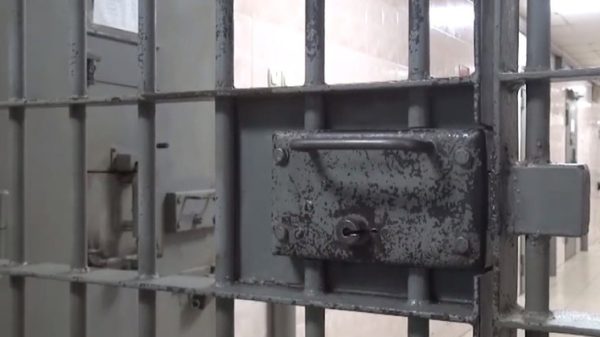No one ever really expected Donald Trump to concede the election.
After all, he told the world he wouldn’t. “The Democrats are trying to rig this election because that’s the only way they’re going to win,” he said back on 13 September. “I will totally accept the results of this great and historic presidential election if I win,” he said in 2016.
Can Trump actually stage a coup and stay in office for a second term?
Read more
But even after he won in 2016, he continued to spread lies about voter fraud, falsely saying that between 3 and 5 million people voted illegally. He also falsely claimed he only lost the state of New Hampshire because people were illegally bussed in from out of state. He created a panel to look into these kinds of issues, stacked with some of the country’s most prominent voter fraud conspiracy theorists. The commission, beset by infighting, dissolved without producing evidence of anything.
Now, after losing the 2020 election to Joe Biden, the president is returning to voter fraud to explain his loss. With flimsy evidence, his campaign has touted a slew of baseless lawsuits across the country. These efforts are unlikely to change the outcome of the election. “What is the downside for humoring him for this little bit of time? No one seriously thinks the results will change,” a senior Republican official anonymously told the Washington Post.
But Trump’s claims and the lawsuits are not, and have never really been about, changing vote totals. By fanning the spectre of voter fraud, Republicans are laying the foundation for questioning the legitimacy of a Biden presidency and any election in which an opposing candidate loses. They are sowing doubt not just about the 2020 election, but whether America’s voting system – the foundation of American democracy – is sound.
Beyond this election, these efforts to sow doubt about election results will also augment a long-term Republican effort to justify making it harder to vote for swaths of the electorate. In a democracy, where governing power is rooted in the consent of the governed, this is deeply dangerous.
Mitch McConnell, the Senate majority leader, suggested this week that Democrats shouldn’t lecture Republicans about the need to concede because Democrats had challenged the legitimacy of Trump’s presidency since 2016. But the morning after the 2016 election, Hillary Clinton conceded the race, acknowledging she lost and saying she hoped Trump would be a successful president.
Part of democracy is accepting the legitimacy of the election
Franita Tolson
“Part of democracy is accepting the legitimacy of the election. We know that because we put so much stock in concession speeches. Not that concessions have any legal impact, it’s because they signal the peaceful transfer of power,” said Franita Tolson, a law professor at the University of Southern California. “It signals to the rest of the world that you can lose an election here and no one loses their head.”
“Seventy million people voted for him. He’s telling 70 million people he was cheated out of the presidency. That can’t help but be corrosive to democracy,” she added.
There’s already some evidence Trump’s effort is working. 80% of Americans believe Biden won the election, but about six in 10 Republicans believe so, according to a Reuters/Ipsos poll. 70% of Republicans also said in a survey this week they didn’t believe the election was “free and fair”, a stark jump from the 35% who said the same before the election.
On Saturday, even after every major media outlet called the election for Biden, Trump supporters said they didn’t know if they could trust the results, even from Fox News, a network often criticized for cozying up to the president and amplifying his misleading messages.
“I trust our locality. But when I heard what’s going on in Detroit, and the bigger cities – I heard they were even burning ballots. I don’t know if it’s true or not,” said Eva Niemela, who traveled to the Michigan state capitol to attend one of several “Stop the Steal” rallies happening across the country by Trump supporters. (Ballots were not burned in Detroit.)
Outside the Pennsylvania convention center, where workers were still counting votes in Philadelphia, a man who would only give his first name, John, said he was certain Trump won the election. “I don’t believe the bullshit about what the press says,” he said. “Trump’s president. Not a doubt.”
The comment was a clear echo of Trump, who has falsely said he won the election, and Republicans such as Mike Pompeo, who said there would be a “smooth transition to a second Trump administration”.
The strategy Republicans are deploying is not just about undermining confidence in the election, it’s also about making it harder to vote in years to come.
The strategy is not new. For years, Republicans activists have used misleading information to stoke fears about illegal voting, even though there’s substantial evidence voter fraud is not a widespread problem. Republicans have subsequently used to justify measures that make it harder to vote, like voter ID and proof of citizenship laws. Part of that strategy has been to loudly announce lawsuits alleging nefarious activity, grabbing headlines, only to see the claims fall apart in court.
Chiraag Bains, the director of legal strategies at Demos, a civil rights thinktank, said Trump’s defeat was an opportunity for the Republican party to distance themselves from claims about fraud. He expressed some skepticism that would happen and called for progressives to pass measures to pre-empt measures that suppress the vote.
“I don’t think it will go away if I’m being honest. The dishonest fraud claims persist because some people benefit from them,” he said. “The right wing echo chamber, they want us to be talking about voter fraud, they want us to have this conversation, even though it’s incredibly rare…It will persist because it’s a powerful justification for these measures that suppress the vote.”
The Trump campaign is doing the same thing now, blasting out inflammatory accusations of fraud that are unsupported by the evidence they file in court. But judges across the country have had no problem quickly dismissing the cases so far.
But even once the Trump campaign’s lawsuits are over, the questions about the integrity of US elections will linger.
‘It must be made to fail’: Trump’s desperate bid to cling to power
Read more
Because win or lose, the hallmark of the American elections, which have long been messy and nasty, has been accepting the results. It’s a recognition that the people have spoken and chosen the direction they want the country to go in. Governance becomes extremely difficult if voters believe the president was not legitimately elected, there is a basis to oppose everything he does.
In a year in which there was record turnout and many states expanded early voting and voting by mail, these questions will provide an avenue for Republicans to justify scaling back those expansions. It’s an approach that aims at the preservation of power above all else.
And holding on to the loyal Trump supporters who believe the lies Trump is spreading about the electoral system is a critical part of that single-minded effort to hold on to that power.
“We need his voters,” said John Thune, a top Republican in the US senate, said this week, describing Trump’s importance to the Georgia senate runoff in January. “And he has a tremendous following out there.”
Lois Beckett contributed reporting






















































Свежие комментарии